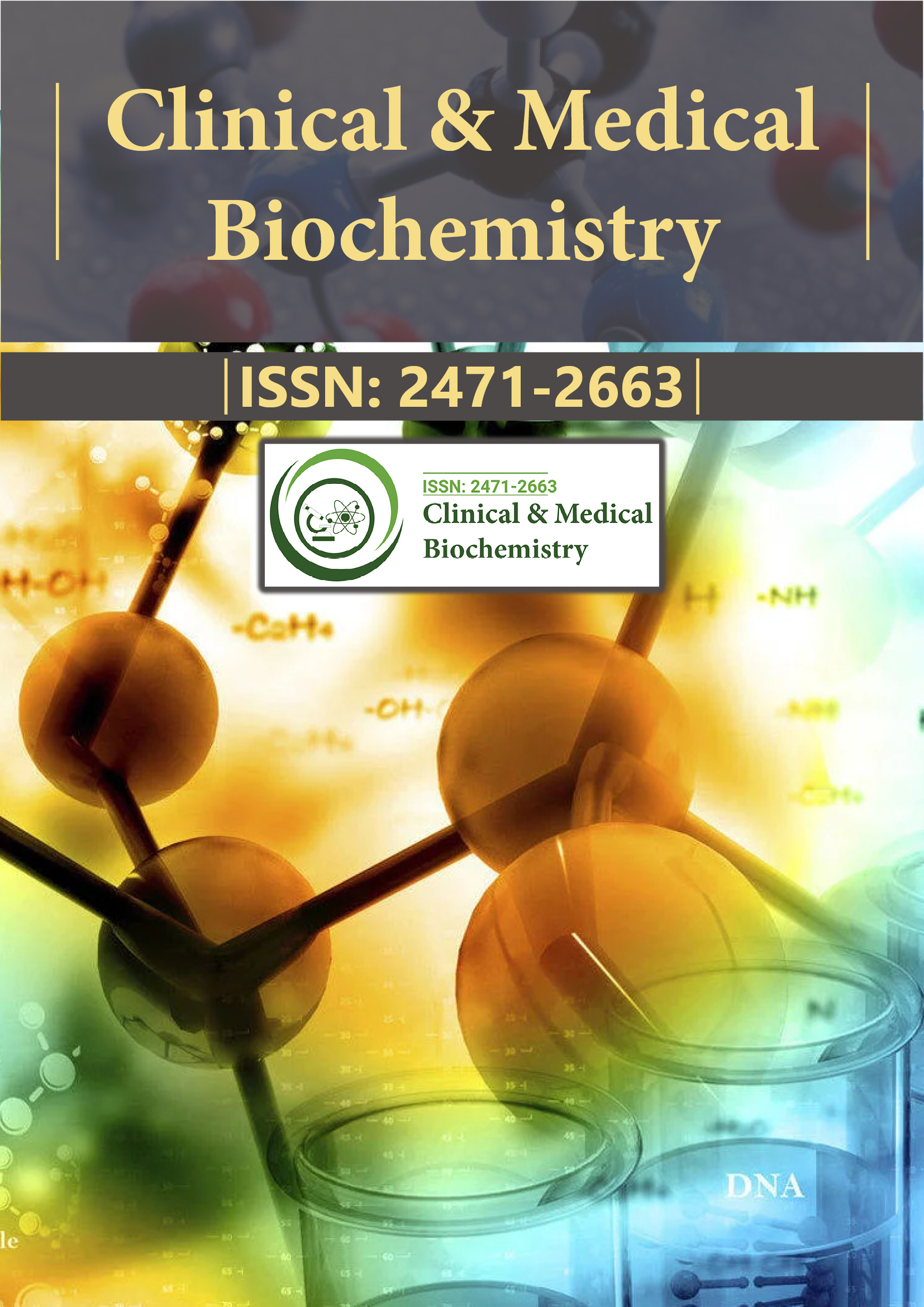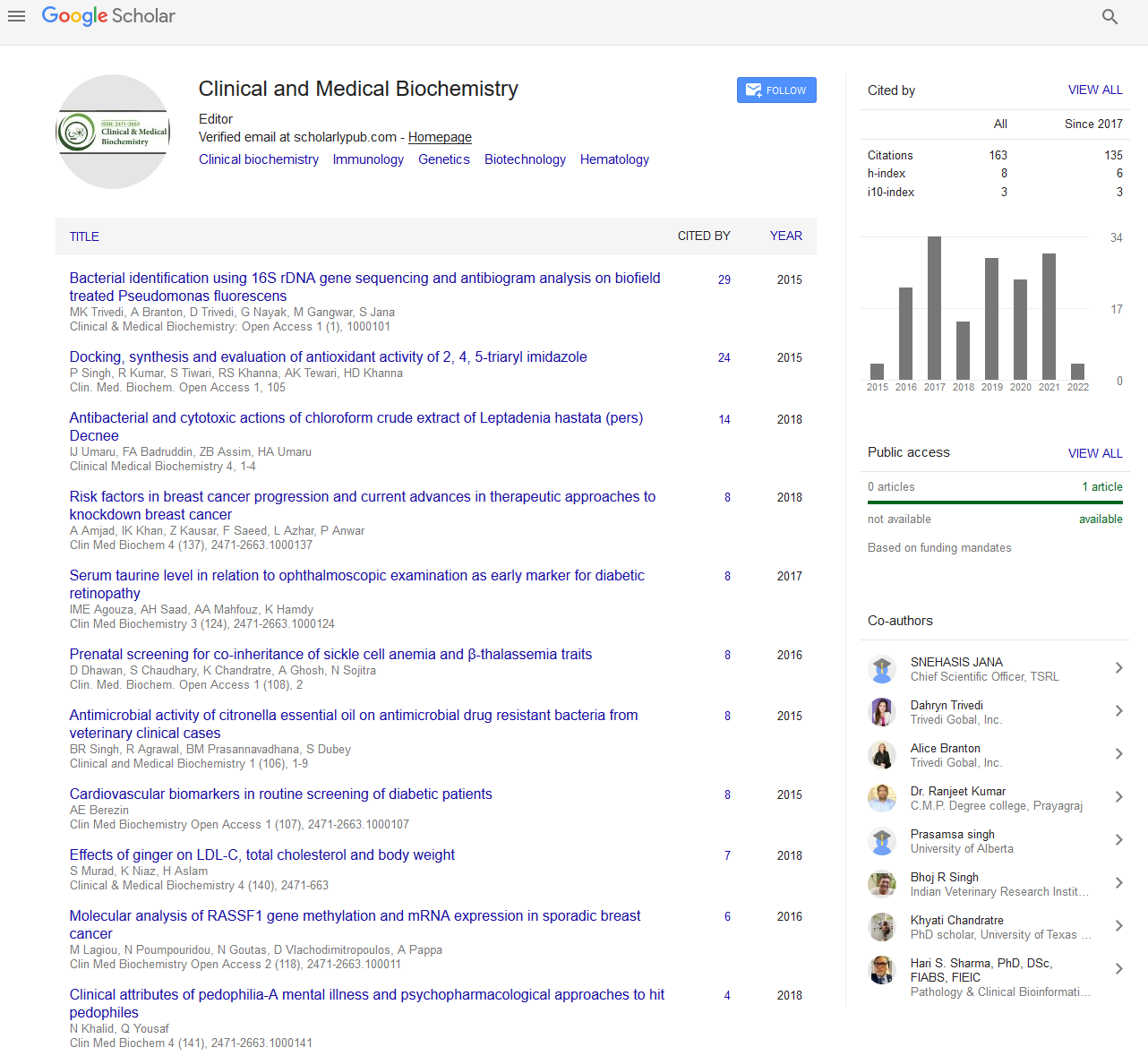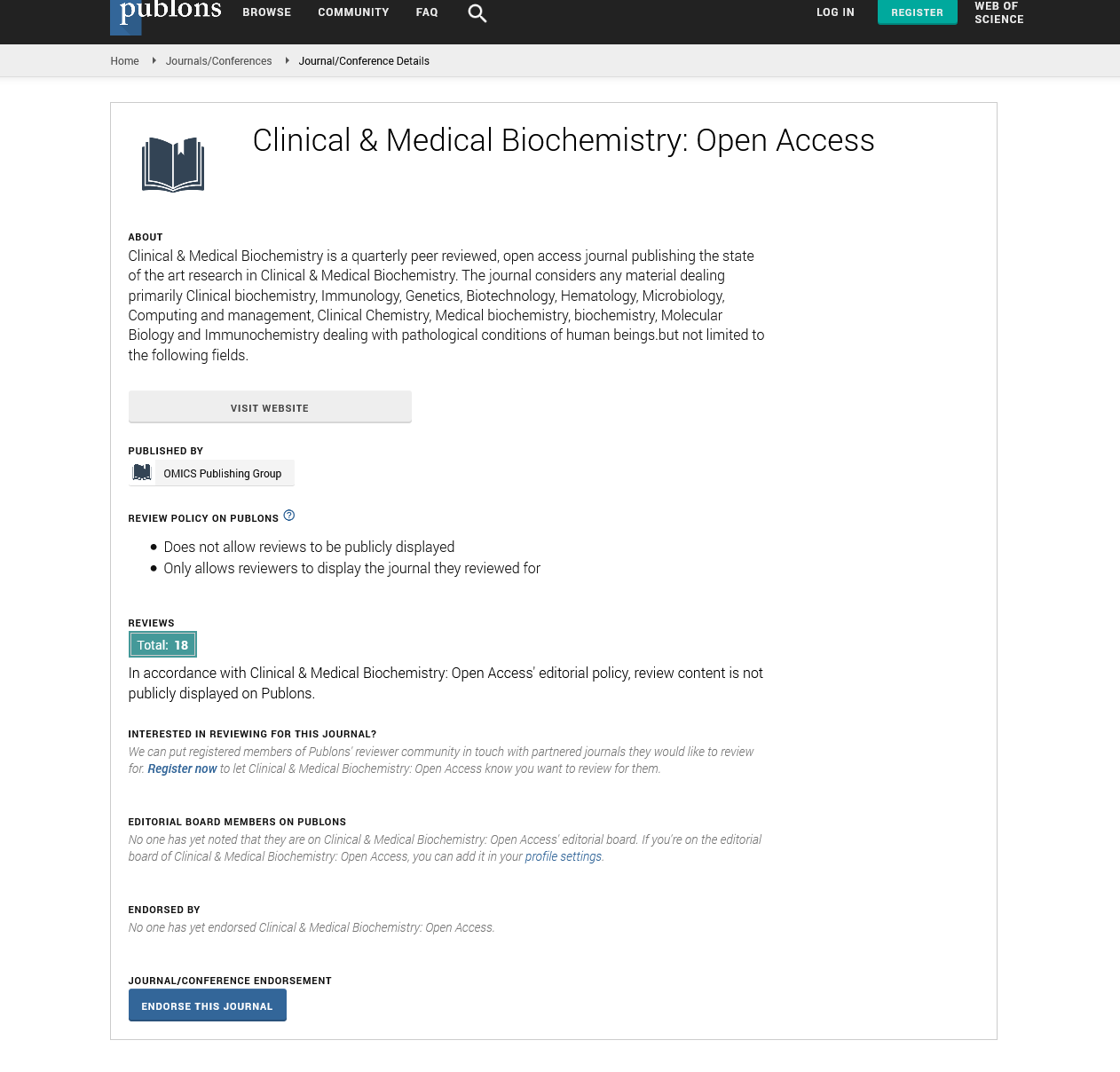Indexed In
- RefSeek
- Directory of Research Journal Indexing (DRJI)
- Hamdard University
- EBSCO A-Z
- OCLC- WorldCat
- Scholarsteer
- Publons
- Euro Pub
- Google Scholar
Useful Links
Share This Page
Journal Flyer

Open Access Journals
- Agri and Aquaculture
- Biochemistry
- Bioinformatics & Systems Biology
- Business & Management
- Chemistry
- Clinical Sciences
- Engineering
- Food & Nutrition
- General Science
- Genetics & Molecular Biology
- Immunology & Microbiology
- Medical Sciences
- Neuroscience & Psychology
- Nursing & Health Care
- Pharmaceutical Sciences
Abstract
Non-Classical Progenitor Mononuclears in Metabolic Syndrome: The Role of Serum 25-Hydroxyvitamin D3
Berezin AE, Kremzer AA, Martovitskaya YV and Berezina TA
Background: There is evidence pivotal role of vitamin D in pathogenesis of metabolic syndrome (MetS) affected worsening endogenous repair system. Objective: This study was conducted to investigate the pattern of circulating progenitor mononuclears in MetS patients with low 25(OH)D3 levels. Methods: The study prospectively evolved 47 patients with MetS and 35 healthy volunteers. Circulating level of 25(OH)D3 and other biomarkers were measured at baseline of the study. Mononuclear progenitor cells were determined using the flow cytometric technique. Results: Metabolic syndrome (MetS) patients from entire group were divided in to four cohorts depending on 25(OH)D3 level>100 nmol/L (n=10), 50 to 100 nmol/L (n=12); 30 to 50 nmol/L (n=14), and<30 nmol/L (n=11). There were sufficiently distinguishes between cohorts patients with Metabolic syndrome (MetS) in HbA1c (P=0.038), HOMAIR (P=0.042), triglycerides (P=0.044), osteoprotegerin (P=0.028), adiponectin (P=0.018), HDL-C (P=0.036), and CD14+СD309+Tie-2+ cells. Vitamin D deficiency status in multivariate log-regression model appeared to be remained an independent predictor to depletion of numerous of CD14+СD309+ Tie-2+ cells (OR 1.12; 95% CI 1.06 to 1.19; P=0.002), whereas other vitamin D statuses were not found as predictors. Osteoprotegerin, hs-CRP, adiponectin have exhibited an independent impact on depletion of numerous of CD14+СD309+ Tie-2+ cells. Using C-statistics we found that three biomarkers (osteoprotegerin, hs-CRP, and adiponectin) avoid to improve significantly predictive model based on plasma level of 25(OH)D3<30 nmol/L for decreased numerous of CD14+ СD309+Tie-2+ cells. In patient study population for category-free NRI, 3% of events (p=0.16) and 4% of non-events (p=0.12) were correctly reclassified by the addition of circulating inflammatory biomarkers (hs-CRP, osteoprotegerin and adiponectin) to the base model for decreased numerous of CD14+ СD309+Tie-2+ cells. Conclusion: In conclusion, we found that vitamin D status especially low level of 25(OH)D3 may associate with depletion of circulating number of proangiogenic progenitor mononuclears in MetS patients.


